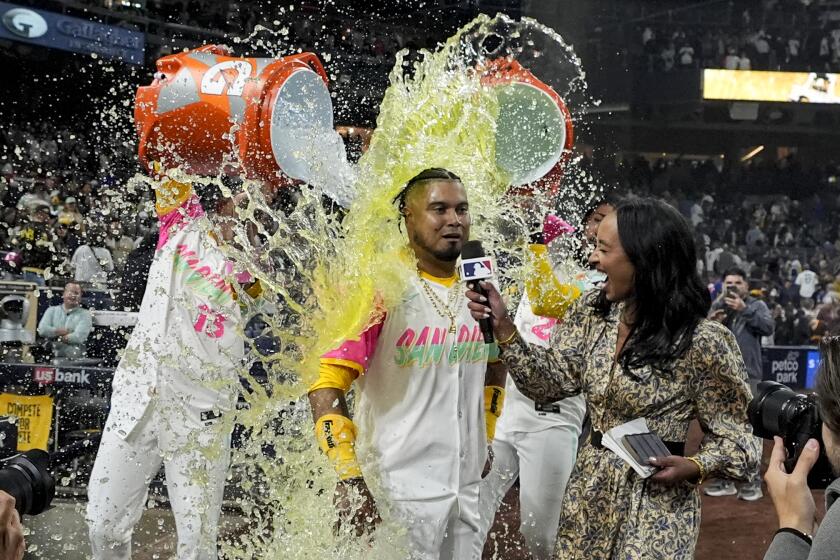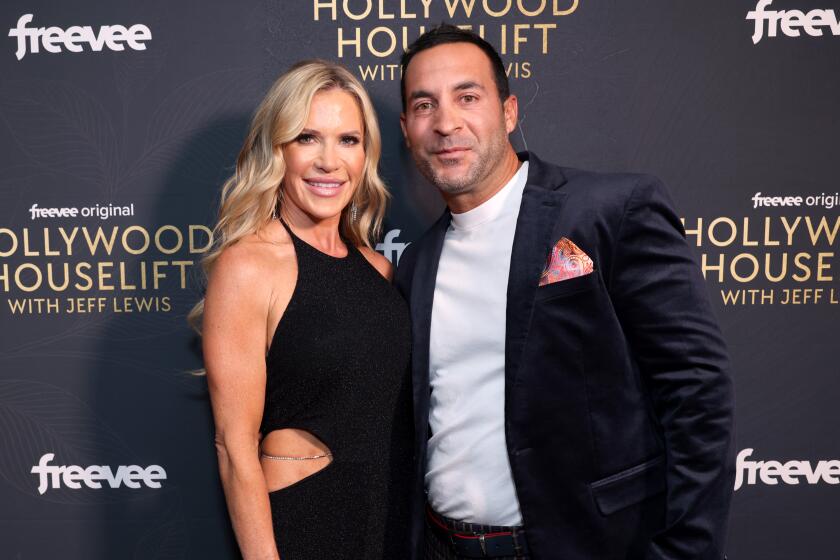Outlook Not Good for Talks
Baseball’s collective bargaining talks recessed indefinitely Monday, with Commissioner Fay Vincent saying he viewed the impasse as a tragedy in which saving face has become an issue for both sides.
On Day 12 of the owners’ lockout of spring training camps, Vincent said that the April 2 start of the regular season was in “very heavy jeopardy.”
“Disappointed is hardly the word,” he said when asked about the prolonged inability to reach an agreement. “I think it’s tragic, and I think that the ordinary fan doesn’t care about issues.
“All the fan cares about is the appearance, and the appearance is that of two giants (management and players) overwhelmed with riches, fighting in a circumstance where there is a national obligation or trust at stake. I think it’s tragic to the point of absurdity.”
An active participant in the stalled talks, Vincent took on the role of mediator Sunday and Monday, attempting in vain to find a compromise to the pivotal issue of eligibility for arbitration during a series of phone conversations with Don Fehr, executive director of the Major League Players Assn.
The only meeting Monday was a brief “courtesy call” on the commissioner’s office by Fehr before he left for Phoenix, where he is scheduled to meet today with his executive board.
Fehr said he probably will then meet with players in two or three other cities before returning to the negotiations in New York.
Charles O’Connor, general counsel of the owners’ Player Relations Committee, said that considering the stalemate over the arbitration question, “It’s probably appropriate to separate for a while.”
How long?
“I think it depends on what happens tomorrow,” O’Connor said.
“Don told us we would hear from him after the meeting.”
Fehr, before leaving, said there had been no breakthrough on the arbitration question and no new proposals relating to pensions, minimum salary or roster size. Alluding to the fact that there were no negotiations Sunday and Monday, Fehr said he wasn’t unwilling to negotiate, but that it would take an indication from the clubs that they have something “new and substantive to talk about.”
Vincent thought he had. He said that recent suggestions by the union that the PRC take a look at the contributions of players with more than two years but fewer than three of major league service might provide the basis of compromise, a system in which two-plus players who met certain service and performance standards qualified for arbitration.
In light of the owners’ insistence that the eligibility standard remain at three years, Vincent’s proposal seemed a significant step toward a compromise. But he said Fehr showed no willingness to compromise, that he remained firm in contending the requirement be rolled back to two years.
“Fay was acting on behalf of the fans,” O’Connor said. “He made a sincere effort to elicit a proposal, but was whistling in the dark. The simple fact is that we can’t negotiate with ourselves.”
O’Connor added that in a letter given to Fehr Monday, he made the point that if an agreement had been reached on salary arbitration, the PRC would have been willing to increase pension contribution and minimum salary. O’Connor left the door open to such a trade-off.
Is the ball now in the players’ court? Is it their responsibility to respond?
Vincent said he hoped they felt that responsibility, much as he felt a sense of urgency to keep working at solutions even though, “I don’t know what I’m doing in a constitutional sense (of the office).
“I think most people, including the players, want to see the game back on the field, but the issue of face is involved here, too,” he said, referring to one side giving up a year or the other giving up on the idea of getting a year.
“The economics involved in that year pale compared to the economics of the season being postponed even a month, so it’s pretty clear it can’t be economics, it has to be something more, and that gets to the issues of morality and emotions, which makes the whole process more difficult,” Vincent said. “I mean, the question of winning or losing in negotiations is an absurdity.”
And he added that to some degree both sides have already lost in that “all this silliness does not enhance our position as a well-run, sophisticated, sensitive enterprise.”
Which is not to say there hasn’t been a variety of agreements. Among the most important:
--Collusion protection guaranteeing, among other things, that the owners will pay treble damages if guilty again in the future.
--A concession by the owners that the right to re-open negotiations in what will be a four-year agreement should come after three years rather than the two they initially proposed.
“We’ve solved a number of issues, but we all knew the arbitration problem would be the most difficult,” Vincent said. “Eventually, you can’t solve it and run out of time--and that’s where we are.”
Where they seem to be is in the midst of a long lockout. Would Vincent reconsider and order their camps opened?
He didn’t answer directly, saying only that an agreement was needed and that he would be weighing ideas.
Even one that would cost the owners face?
More to Read
Are you a true-blue fan?
Get our Dodgers Dugout newsletter for insights, news and much more.
You may occasionally receive promotional content from the Los Angeles Times.






